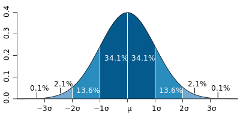It's no secret that Microsoft (MSFT +1.98%) has struggled under longtime CEO Steve Ballmer. The company has failed to achieve relevance in the mobile space, Ballmer presided over some of the worst misfires in Microsoft's history, and the end result is 13 years of stock returns that couldn't hold a candle to the Dow Jones (DJINDICES: ^DJI) index, represented here by the SPDR Dow Jones Industrial Average ETF to reflect the impact of reinvested dividends:
MSFT Total Return Price data by YCharts.
So it was welcome news to many Microsoft investors when Ballmer announced his retirement this summer. The board is still looking for his successor, and we could still be months away from Ballmer packing up his corner office, but the company is already making some radical changes.
This week, for example, Microsoft announced the end of the so-called "stack ranking" policy, which has been a cornerstone of employee performance evaluations under Ballmer. That's great news for Microsoft, for its employees, and for Redmond's chances of attracting top talent in the crucial first few years under new management.
The stack ranking policy forced managers throughout the organization to grade their subordinates on a bell curve. You can't have top performers without a bottom layer, and these reports were a key component of every Microsoft career path.

No more of these grading curves at the new, healthier Microsoft. Image source: Wikimedia Commons.
The policy was unpopular from the start and never gained support as the years passed. It's easy to see why: Making an internal race out of everything makes enemies out of teammates. Why should I work my fingers to the bone if I can look just as good by taking my peers down a notch instead? And when everyone thinks that way, because they have orders from the top to do so, productivity plummets in a blaze of backstabbing -- some real, some imagined, but it doesn't matter; the end result is the same.
The problem becomes especially damaging in teams that consist of all superstars. Putting together a crack squad to tackle hard problems becomes a self-defeating exercise, because the star performers you need will be better off as rock stars on mediocre teams, rather than trying to stay out of the bottom tier among fellow high-performers.
But that's all in the past now. ZDNet got its hands on an internal email announcing the end of the stack ranking policy and promising less backstabbing ahead. More teamwork, more attention to personal growth, no more ratings, and no more grading on a curve.
This move alone won't be enough to mend all that is wrong with Microsoft today, but it's an excellent start. Microsoft shares rose a modest 0.9% on the news amid a generally neutral trading day in which the Dow is up just 0.1%. I can't blame Microsoft investors for taking a sober look at what it all means, but it's bigger news than the slow share price move would make you think.

